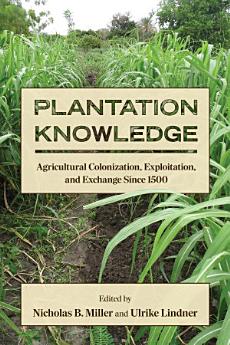Plantation Knowledge: Agricultural Colonization, Exploitation, and Exchange Since 1500
About this ebook
Few institutions feature as prominently in contemporary notions of colonialism, racism, and environmental degradation as the modern plantation. The racialized plantations of the Atlantic World loom large in the public imagination, namely those of the British Caribbean and the US South. Yet, the plantation has proliferated into the Information Age and has continued to expand across the tropical zone of our planet, surviving the abolition of slavery, the collapse of European empires, and the challenge of generations of anti-colonial thinkers. To grasp how the plantation has spread and evolved in our modern world, this volume studies what it terms plantation knowledge, or the types of expertise, experience, and information processing that have made and continue to make plantations possible. Drawing on case studies including Ireland, Mexico, Mississippi, Hawaiʻi, India, Malaysia, the Philippines, Cuba, Brazil, and Central Africa, it examines the global spread of the plantation; the diverse people, beings, and forms of knowledge intertwined with this process; and the elasticity and durability of the plantation as a mode of commercial agriculture.
About the author
Nicholas B. Miller is Associate Professor of History at Flagler College. He is the author of John Millar and the Scottish Enlightenment: Family Life and World History and editor of Cameralism and the Enlightenment: Happiness, Governance and Reform in Transnational Perspective. Ulrike Lindner is Professor of Modern History at the University of Cologne. She is the author of Koloniale Begegnungen: Deutschland und Großbritannien als Imperialmächte in Afrika 1880–1914 and editor of Bonded Labour: Global and Comparative Perspectives (18th–21st Century).




